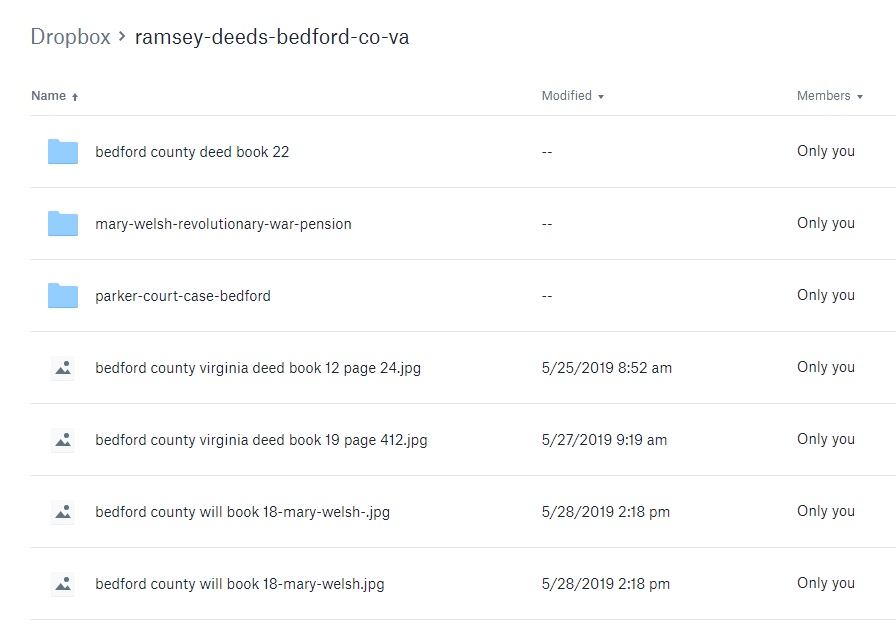
I know that I’m supposed to do it. I really do. But, like probably everyone else who is honest, I don’t always take notes as I research. That wastes time later.
While at the Family History Library in Salt Lake City, I worked on the extended family of a woman named Mary Parker who was a resident of Bedford County, Virginia, in the late 18th and early 19th centuries. Quite a few documents were located on Mary and various members of her family. I made digital copies of records and indicated the original sources from which those images were obtained. I even wasted two hours one morning because I had neglected to put volume numbers on the images of deed books as I made them.
But when I returned home, I realized that there was a part of my process that I had neglected to record. As I located documents (and partially read them as I made digital copies), I made “notes in my head” about the people I was researching, vital events in their lives, who their relatives were, etc. Those notes in my head are no longer in my head. I can sort my images by date and time they were made. That helps me to see the images in the order in which they were located, but that doesn’t always help me to completely reproduce my process.
What I usually do is take pictures of all notes that I write as I research. Those details are usually sufficient for me to refollow my steps when I return home. For those whose handwriting is not worth reproducing, typing your notes (or emailing them to yourself) is a good option as well.
It’s not just your research onsite that you should summarize as soon as possible. If you’ve made notes while interviewing a family member, review those notes as soon as you can and make any annotations while details are fresh in your mind.
You will forget that which you think you will never forget.
Teresa says:
Great reminder…I’m bad for it too. I use Zotero now and try to save to there and make digital notes to remind me. Of course, I don’t always remember.
Toni says:
I know. And yet when I hit a hot lead…
Just a few minutes ago I emailed my research partner with a new theory from yesterday. I thought it would be easier to get her in on the ground floor rather than to try and explain it some time in the future if it all panned out. But when it came to reasons why I thought I was on the right trail, I didn’t have any documents to tie it all together. The circumstantial evidence was all in my head.
mjnrootdig says:
I often pretending I’m emailing another person when I’m really just emailing myself. The more I explain the better it is later. And what I keep “in house” as speculation stays in my email.